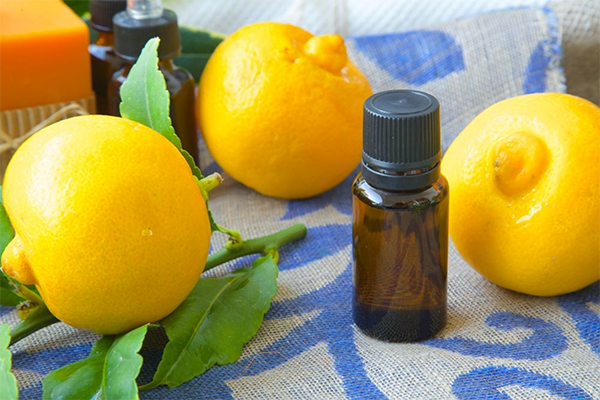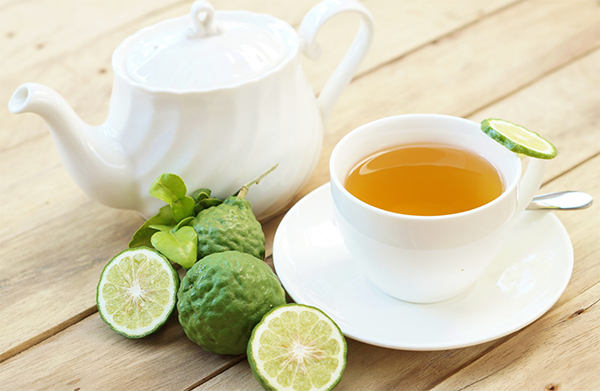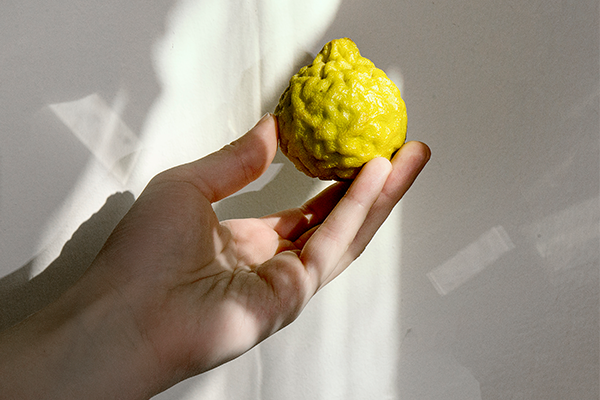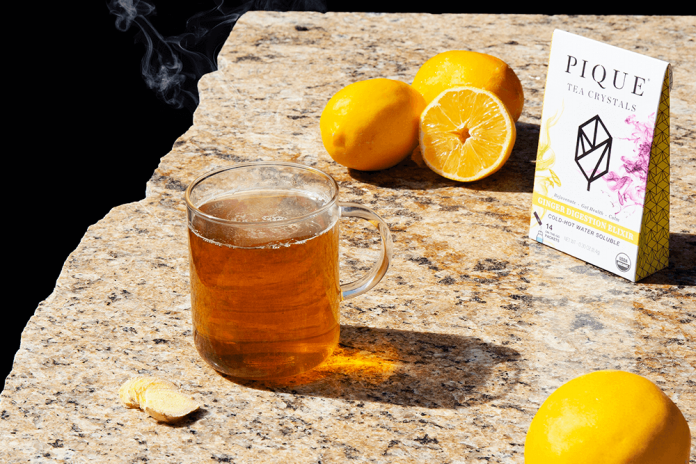You might recognize bergamot as the reason behind the unique flavor profile of Earl Grey tea, but did you know it’s a fruit?
Yup – a citrus fruit! Besides tea, it’s also found in perfumes, cosmetics, foods, and more. In fact, it’s historically been one of the most important essential oils used in the Western world.
And recently, scientific research has discovered a variety of active compounds and possible health benefits associated with bergamot.
Keep reading to learn more about the history and origins of bergamot, its scientific properties, traditional therapeutic applications, and its safety and side effects.
What is Bergamot?
The bergamot fruit, also called Citrus bergamia, is a highly aromatic cousin of the common sweet orange.
Approximately the same size as regular oranges but often pear-shaped, bergamot oranges are green or yellow depending on ripeness. Their scent is more floral than other citrus fruits, while the flesh and juice are tart, bitter, and spicy.
Not all researchers agree as to which fruits bergamot descended from originally. They describe it variously as a hybrid between bitter orange and citron, bitter orange and sweet lime, or bitter orange and lemon (2)(3)(4).
The bergamot tree blossoms in winter, and does best in the microclimate of southern Italy by the Ionian sea in Calabria due to rich mineral salt deposits, rainy winters, and warm-humid summers (2).
It might be easy to confuse Citrus bergamia with the Monarda genus of flowering mint that are variously called bee balm or bergamot. Monarda species get their nickname from a bergamot-like smell, but they’re unrelated to true bergamot.
How is Bergamot Used?
Commercially, Citrus bergamia and its derivatives go into perfumes, desserts, and Earl Grey tea, as well as pure essential oil for aromatherapy.
Most manufacturing applications use bergamot essential oil exclusively, but recent evidence shows that bergamot juice, rind, and whole fruit each have unique, potentially valuable properties (1).
Historically, bergamot’s most common use has been in different types of fragrances. Initially, it became very popular as a scent agent as the French perfume industry burgeoned in the 17th century (2).
Most people today associate bergamot with different varieties of Earl Grey tea, although the combination of tea and Citrus bergamia oil or rind didn’t appear until the late 19th century (2).
Today, scientific researchers and wellness enthusiasts are finding renewed interest in the fruit as new studies emerge that point to unusual properties of bergamot.

Buyer Beware
You should keep in mind that findings on bergamot’s health benefits won’t apply to all consumer products labeled with bergamot.
It’s an open secret that some types of bergamot flavored products, including many Earl Grey teas, contain no real bergamot–only artificial flavoring.
For authentic flavor as well as any potential benefits, stick with products that contain real bergamot essential oil, whole fruit (or its extracts), or bergamot rind.
Potential Health Benefits of Bergamot
While bergamot has enjoyed continuous use globally and in the West for nearly 400 years, scientific inquiry into the properties of bergamot fruit is relatively recent.
For the most part, commercial bergamot farmers have focused exclusively on producing essential oil. The reasons why are easy to understand: it’s compact, lasts a long time, and it’s easy to trade.
Some sources state that approximately 100 bergamot oranges distill down to just 3 ounces of essential oil (5).
However, researchers have recently discovered that the oil, juice, and rind of bergamot may each have compounds not found in other bergamot derivatives.
According to a 2016 paper from the science journal Molecules, bergamot oil is rich in terpenes and furocoumarins, particularly bergapten and bergamottin, while the juice and whole fruit are high in flavonoids like naringin and hesperetin (6).
Naturally, such a distinction leads to different properties between Citrus bergamia derivatives.
The authors also shared that “all phytochemicals present in whole extracts may simultaneously modulate different targets of action in human cells, leading to a mixture of pharmacological effects” (6).
Effects on Mood
Bergamot oil has long been a favored essential oil in aromatherapy, due to a traditional belief that it can support a balanced mood.
Several studies show that inhaling diffused Citrus bergamia oil may support your ability to stay calm during times of stress (13)(14)(15)
Effects on Cellular Health
Based on both in vitro and in vivo (on rats) cell studies, compounds in bergamot juice, bergamot oil, and whole bergamot all have the potential to support the body’s natural anti-inflammatory response (6).
Inflammation is the swelling of a cell, and when cell studies show a reduction in this swelling or reductions in certain chemicals, a compound is said to be anti-inflammatory.
The whole fruit and juice of bergamot are also rich in flavonoids and polyphenols, which are known to be health-supporting antioxidants (6).
Effects on Pain
Bergamot has also been studied for possible help with pain relief. A compound called 5-methoxypsoralen (5-MOP) found in bergamot essential oil may block potassium channels, which has led researchers to investigate it for implications on pain (11).
Another study found that bergamot could support the secretion of hormones which affects nerves’ sensitivity to pain (12).
Other studies suggest that bergamot essential oil could be a helpful complementary addition to other pain relievers (12).
Effects on Bacteria
A particularly interesting area of research on bergamot indicates that it may be able to assist with fighting off microbes.
A 2009 study in the Journal of Applied Microbiology showed that bergamot oil extract was able to affect the cell membrane of Enterococcus bacteria strains, which leads to restricted cell growth or cell destruction. (23) Bergamot demonstrated similar antimicrobial effects in a handful of other studies. (24)
Effects on Circulation
Preliminary evidence suggests bergamot may support a healthy circulatory system in the following ways:
- Supporting healthy lipid levels (15)
- Supporting healthy cholesterol levels (16)
- Supporting cellular health (17)
Additionally, bergamot contains flavanones with natural statin properties (16).
What about Autophagy?
Science has recently hypothesized that our cells use a process called autophagy to recycle old cells and renew tissue. Some scientists think that autophagy plays other important roles in the lives of cells (7).
The reality, however, is that no one has yet been able to actually measure autophagy in humans.
Recently, bergamot has been in the news for its purported ability to help stimulate this autophagy process. These findings are, thus far, unsubstantiated. Scientific research into autophagy, in general, is young, so nothing is certain in this area.
Therapeutic Uses of Bergamot in Traditional Herbalism
Bergamot has been used historically in Italian folk medicine, Ayurveda and Traditional Chinese Medicine, for a whole variety of uses that Western science has not yet reliably established.
Indigenous Italians believed that bergamot could support the body’s ability to cope with fever or help get rid of stomach bugs. Ayurvedic tradition indicates bergamot can help bring the body back into balance in the areas of skin health, appetite, digestion and mood.
It’s possible that all of these traditionally-observed effects are simply a result of bergamot’s high antioxidant and polyphenol content, or perhaps it is due to something unique to the bergamot fruit. Until modern science catches up, we can’t be sure.
Bergamot is the near relative of Citrus aurantium (bitter orange) and Citrus medicum (called Buddha’s Hands or Fo Shou Gan), both of which have prominent roles in traditional Chinese medicine (TCM).
TCM considers citrus fruits to have the following properties:
- Bitter
- Neutral to warming
- Interaction with spleen, stomach, and lung meridians
- Helpful in nausea and vomiting
Bergamot in particular may be helpful for balancing energy, opening up blocked qi meridians (especially those related to digestion), and brightening mood.

Safety and Side Effects
The weight of evidence suggests drinking, eating, or smelling bergamot or its derivatives is very safe.
For example, the US Food and Drug Administration considers bergamot essential oil “generally recognized as safe” (GRAS) as a food additive (17).
One possible (and rare) case of bergamot overconsumption occurred when a man drank up to four liters every day of Earl Grey tea for 25 years (18). He experienced muscle cramps and twitches that went away when he stopped consuming so much tea.
Of course, most people don’t drink over 9000 gallons of Earl Grey tea in their lifetime!
However, when it comes to putting bergamot products on your skin, be very cautious, especially if you’re going to be in the sun or using a tanning bed.
Physicians first noticed that bergamot oil used in perfume could cause rashes around a century ago in France (19). The rashes are actually severe skin photosensitivity reactions from applying bergamot oil, then exposing the area to the sun or ultraviolet light.
Today, the International Fragrance Association (IFRA) limits bergamot content of leave-on skin products to 0.4% (20).
Remember to always dilute essential oils with carrier oils prior to topical use, including bergamot essential oil.
If you take certain prescription medications, there’s a small chance bergamot may increase their potency because it contains bergamottin (21). Bergamottin also occurs naturally in grapefruit, and may be responsible for grapefruit-drug interactions (22).
Talk to your doctor to be on the safe side if you take prescription drugs and plan to add bergamot to your diet.
Finally, if you experience any symptoms or side effects after drinking Earl Grey or using bergamot, make sure to speak to a physician as soon as possible and temporarily discontinue use.
Final Thoughts
Bergamot is so much more than a flavoring agent or a pleasant scent.
But if you want to see what bergamot can do for your health, choose carefully.
Counterfeit essential oils are common, and many bergamot flavored products such as commonly available Earl Grey teas contain no bergamot whatsoever, only artificial flavoring.
If you decide to explore the flavor and possible benefits of bergamot, ensure you select a product that contains authentic essential oil, ground whole fruit, or bergamot rind.






